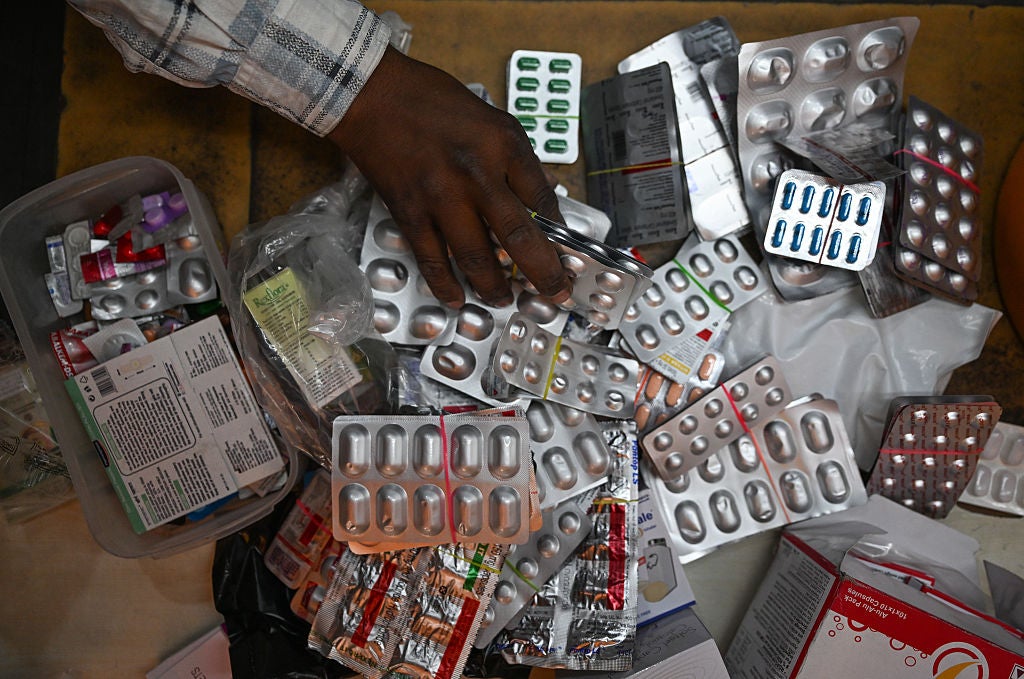Donald Trump has devastated stock markets with investors and businesses over the past few weeks after announcing his plan to resolve trade imbalance with other countries.
While some of them have been withdrawn after that – at least temporarily – aluminum, steel and auto parts still have additional levies on exports to the United States.
But a department – pharmaceuticals – is still waiting to find out what tax he has, at the same time, the US president expects to pay taxes on the industry in the coming days, and on April 8 he vowed that he was “coming” very soon.
Industry residents fear that the price level can be like 25 % facing the auto parts industry. This could have a significant impact on the flow and supply of pharmaceuticals and vaccines around the world if companies chose to go to the United States to avoid their payment, as Mr. Trump has said, the United States no longer makes its medicines. The President advised that “I just have to impose a tariff. The more, they move here faster.”
Analysts have warned that revenue can affect the company’s profit margin, which, in turn, will reduce the amount of funds available to plow up research for new drugs. However, obstacles to self -drug supply can be even more expensive for those who rely on them.
So, what does it mean for NHS? In the UK, any fear at low prices should prove baseless – at least in the mid -period.
Pharmaceutical industry experts have advised Free While the total pharma exports from the UK to the United States are “important”, one -third of such products are manufactured here, even lower -demand loss should not have a major impact on the delivery or cost of the UK buyers, including the NHS.
Although business tariff -affected cancellations or lost consumers can sometimes eliminate some prices for lost revenue revenue, but this will potentially be a widespread problem with numerous companies that are looking for new consumers, which should limit the increase in prices.
“Since the United States is trying to move from Imported to domestic sources, you can demand us,” said Amar Brackenryj, a senior colleague of Frontier Economics. Free.
He added: “But this will put pressure down on prices (in the UK). Other countries wanting to export to the United States will look for other markets, including the UK.
“This does not take any retaliation on the taxes – I don’t think it will be especially on pharmaceuticals.”

Business Advisory Firm RSM’s International Trade Partners, Brad Ashton, agreed that the UK could see “short -term price reduction” on the back of US -bound products, while adding that “no impact on supply chain could affect the availability of medical equipment in the long -term, reducing R&D.
Free It is understood that there is still little detail about the fact that it is expected to handle any upcoming GS changes, but there is still little details about what it can face. Nevertheless, from a point of view such as dual souring and scenario planning, they and other people in the pharma world will help tackle any barriers to the supply chain and maintain the flow of medicines worldwide.
Still, the details are where the belief will come from. Where the drug -affected medicines are produced or sent from them, both can have effects. Many operators will have production sites, labs and offices all over the world.
GS is a company on the UK list, yet only two percent of its business – the company reported the annual business of $ 31 billion in 2024 – here. More than 50 % of its sales are in the United States – which is the only largest market for drug distribution.
Industry insiders said it is common for pharmaceutical companies as a result of population size, economic power and trading factor available within the nation.
On the London Stock Exchange, many companies work in the health care sector. The largest in any business in the FTSE 100 through market capitalization, Astra Zenika did not respond to the request to comment on the incoming revenue. The GS 55bn is sitting in the top ten with the market cap, with the heckma pharmaceuticals, which is a small dress, which is 2 4.2bn, but still in the UK list in the list of 100 list companies.
All three firms have seen a decline of 11, 14 and seven percent in their share prices in a month – with 18 percent since mid -February. Danish Ozampic makers Novo Nordsesk and German giant Bayer are less than 23 and 13 % shares, respectively, from mid -March.
Before the rates are kept, all of this is equal to the price of tens of billions of capital.
A Barclays research note highlights the uncertainty of the time that is currently facing the sector.
Although the bank realized that the choice of Baire, Hackma and GSK could face the highest risk of prices, Austra Zenika was listed as one of the lowest exposed. He was also angry with “many unknown people”.
When prices eventually come down, some companies are likely to further damage the share prices and others will probably consider their future on this aspect of the world.


